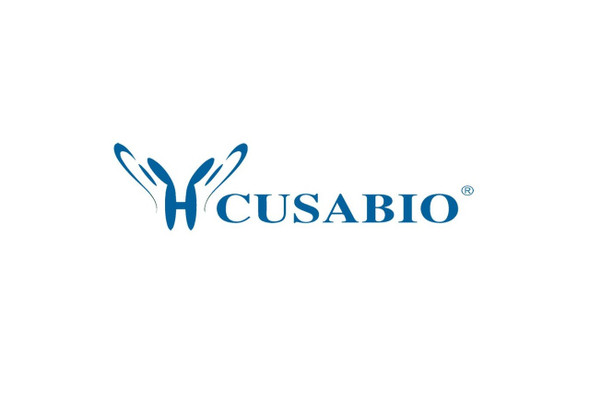Cusabio Active Proteins
Recombinant Human CCN family member 1 (CCN1) (Active) | CSB-AP002661HU
- SKU:
- CSB-AP002661HU
- Availability:
- 5 to 10 Working Days
Description
Recombinant Human CCN family member 1 (CCN1) (Active) | CSB-AP002661HU | Cusabio
Protein Description: Full Length of Mature Protein
Alternative Name (s) : CCN family member 1, Insulin-like growth factor-binding protein 10, IBP-10, IGF-binding protein 10, IGFBP-10
Gene Names: CYR61,CCN1,GIG1,IGFBP10
Research Areas: Immunology
Species: Homo sapiens (Human)
Source: E.Coli
Tag Info: Tag-Free
Expression Region: 25-381aa
Sequence Info: TCPAACHCPL EAPKCAPGVG LVRDGCGCCK VCAKQLNEDC SKTQPCDHTK GLECNFGASS TALKGICRAQ SEGRPCEYNS RIYQNGESFQ PNCKHQCTCI DGAVGCIPLC PQELSLPNLG CPNPRLVKVT GQCCEEWVCD EDSIKDPMED QDGLLGKELG FDASEVELTR NNELIAVGKG SSLKRLPVFG MEPRILYNPL QGQKCIVQTT SWSQCSKTCG TGISTRVTND NPECRLVKET RICEVRPCGQ PVYSSLKKGK KCSKTKKSPE PVRFTYAGCL SVKKYRPKYC GSCVDGRCCT PQLTRTVKMR FRCEDGETFS KNVMMIQSCK CNYNCPHANE AAFPFYRLFN DIHKFRD
Biological Activity: Fully biologically active when compared to standard. The ED50 as determined by a cell proliferation assay using murine Balb/3T3 cells is less than 3.0 μg/ml, corresponding to a specific activity of > 330 IU/mg.
MW: 39.4 kDa
Purity: >95% as determined by SDS-PAGE and HPLC.
Endotoxin: Less than 1.0 EU/µg as determined by LAL method.
Relevance: Promotes cell proliferation, chemotaxis, angiogenesis and cell adhesion. Appears to play a role in wound healing by up-regulating, in skin fibroblasts, the expression of a number of genes involved in angiogenesis, inflammation and matrix remodeling including VEGA-A, VEGA-C, MMP1, MMP3, TIMP1, uPA, PAI-1 and integrins alpha-3 and alpha-5. CYR61-mediated gene regulation is dependent on heparin-binding. Down-regulates the expression of alpha-1 and alpha-2 subunits of collagen type-1. Promotes cell adhesion and adhesive signaling through integrin alpha-6/beta-1, cell migration through integrin alpha-v/beta-5 and cell proliferation through integrin alpha-v/beta-3. {ECO:0000269|PubMed:11584015}.
PubMed ID: 9135077; 9536281; 10852911; 11810026; 15489334; 11584015; 9446626; 10446209; 10821835; 11287419; 26091039
Notes: Repeated freezing and thawing is not recommended. Store working aliquots at 4℃ for up to one week.
Function: Promotes cell proliferation, chemotaxis, angiogenesis and cell adhesion. Appears to play a role in wound healing by up-regulating, in skin fibroblasts, the expression of a number of genes involved in angiogenesis, inflammation and matrix remodeling including VEGA-A, VEGA-C, MMP1, MMP3, TIMP1, uPA, PAI-1 and integrins alpha-3 and alpha-5. CYR61-mediated gene regulation is dependent on heparin-binding. Down-regulates the expression of alpha-1 and alpha-2 subunits of collagen type-1. Promotes cell adhesion and adhesive signaling through integrin alpha-6/beta-1, cell migration through integrin alpha-v/beta-5 and cell proliferation through integrin alpha-v/beta-3.
Involvement in disease:
Subcellular Location: Secreted
Protein Families: CCN family
Tissue Specificity:
Paythway:
Form: Lyophilized powder
Buffer: Lyophilized from a 0.2 µm filtered citrate buffer solution, 300 mM NaCl, pH 3.0
Reconstitution: We recommend that this vial be briefly centrifuged prior to opening to bring the contents to the bottom. Please reconstitute protein in deionized sterile water to a concentration of 0.1-1.0 mg/mL.We recommend to add 5-50% of glycerol (final concentration) and aliquot for long-term storage at -20℃/-80℃. Our default final concentration of glycerol is 50%. Customers could use it as reference.
Uniprot ID: O00622
Uniprot Entry Name: CYR61_HUMAN
HGNC Database Link: HGNC
UniGene Database Link: UniGene
KEGG Database Link: KEGG
STRING Database Link: STRING
OMIM Database Link: OMIM










